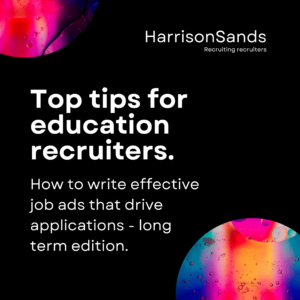Writing a good CV should be a priority for any jobseeker. It’s typically the first opportunity a recruiter or employer has to interact with a jobseeker, so conveying the right information, clearly and concisely is of paramount importance.
Our team come across a wide variety of CVs, dealing with hundreds or even thousands every week. As such, we’re pretty sure we know what makes the difference between a good CV and a great CV. But even more fundamental than the polish and design you can add to your CV, there are some essential elements that we see overlooked so often.
To help, here’s a rundown of the top 10 things you need to think about when writing your CV.
- Check your contact details
Make sure all your contact details are on the CV and be conscious of what your email address says about you. - Don’t waffle on
Be conscious of the amount of pages you use. If you can get everything on two and it’s easy to read, then that’s perfect. Anything above four pages and you’ve likely lose your audience’s attention. - Tailor your personal statement to the job you’re applying for
Make sure your personal statement is relevant to the role you are applying to and highlights specific skills mentioned in the job application. - Organise chronologically
Ensure your work history starts with your most recent role. - Check your LinkedIn and CV align!
You LinkedIn profile should reflect the same work history as your CV. - Make it make sense – be clear and organised with the layout
Your CV needs to be easy to navigate and follow a logical structure. - Describe your achievements, not just your skills
State your success in every role. So, not just listing your responsibilities, but explaining what you’ve achieved. - Bullet point your job description, don’t have long lengthy explanations
When discussing your role ensure it’s easy to understand what you actually do. Don’t always assume the audience knows the company you work for, so a small company statement might help them put your work experience into context. - Keep older jobs short and sweet and concentrate on your most recent and relevant jobs
Don’t be afraid to condense listed duties on your older jobs, if you’ve stated the same tasks in a more recent role. - Save and send as a Word document
Keep and send your CVs in Word format, as opposed to PDF. They are easier to open and if you are using a recruitment agency they will type up interview notes and add on to the CV.
It might not seem like much but making it easier for time-poor recruiters, often inundated with applicants, to filter through candidates and understand all the important stuff about each as quickly as possible – will help recruiters no end. And if you’re making life easier for a recruiter and you’re suitable for the role, you’ll be considered in a favourable light and go on to the shortlist quickly.


